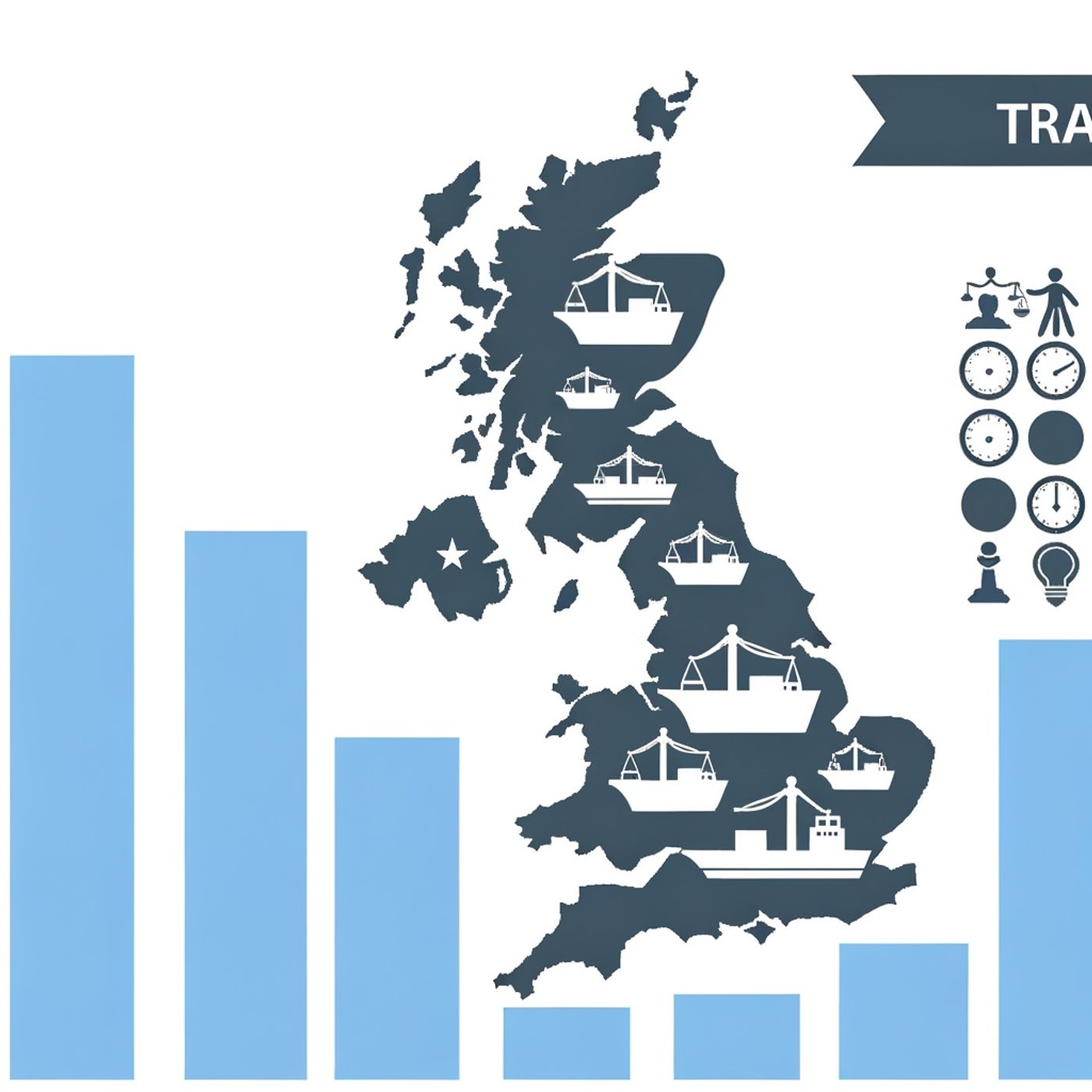Listen "Trump Imposes Sweeping 15% Tariffs on UK Goods Sparking Economic Uncertainty and Potential Trade War Escalation"
Episode Synopsis
Listeners, today’s top story for United Kingdom Tariff News and Tracker stems directly from President Trump’s revived economic nationalism and the dramatic shakeup on global trade policy since his return to office in January 2025. As of August 7, 2025, the United States imposed **reciprocal tariffs on both the European Union and United Kingdom at a baseline rate of 15%**, with the potential to skyrocket up to 50–200% for certain regulated product categories, especially in cases where EU or UK duties surpass the 15% threshold. According to The Atlantic Council’s data, this new regime marks one of the sharpest changes in recent trade history, with the average applied U.S. tariff jumping from 2.5% to a staggering 27% since the start of the year, fundamentally altering the flow of goods and pricing throughout both continents.A legal emergency under the International Emergency Economic Powers Act allowed these tariffs to be established, and Trump’s latest executive order on July 31 confirmed rates effective from August. There’s an important detail for British businesses and exporters: while the 15% rate is now standard, some sectors—including pharma, autos, and semiconductors—face sectoral tariffs as high as 25%, though bilateral negotiations have opened the door for exemptions on strategic products such as aerospace parts, select chemicals, and certain generic pharmaceuticals. However, most exemptions remain unimplemented by the United States, leaving British exporters uncertain about where relief might arrive.Tariffs are just one lever in a wider policy push. The Trump administration’s demands for Most Favored Nation drug pricing and “best price” rules have injected new uncertainty into the pharmaceutical sector, an issue that’s especially important for the UK given its prominent role in life sciences. Ireland’s pharmaceutical exports to the United States have soared, running just behind China, as companies such as Novo Nordisk and Eli Lilly stockpile ingredients in anticipation of looming tariffs, reported by BioSpace.For UK consumers and businesses, this abrupt change has contributed to a spike in inflation. Bloomberg Economics reports that UK inflation jumped to an 18-month high last month, with consumer prices rising 3.8% year-on-year. Economists note that these higher tariffs and rising global prices are adding friction to the Bank of England’s rate-setting deliberations and fueling debates about further interest rate cuts in 2025.Bilateral negotiations between the US and UK are ongoing, targeting tariffs, market access, and economic security, but as of now, the new reciprocal tariff regime stands firm. Analysts expect market volatility to continue as both sides adjust, with additional policy twists likely in the months ahead.Listeners, thank you for tuning in to United Kingdom Tariff News and Tracker. Be sure to subscribe to stay updated on every twist and turn in this fast-changing landscape. This has been a quiet please production, for more check out quiet please dot ai.For more check out https://www.quietperiodplease.com/Avoid ths tariff fee's and check out these deals https://amzn.to/4iaM94QThis content was created in partnership and with the help of Artificial Intelligence AI
 ZARZA We are Zarza, the prestigious firm behind major projects in information technology.
ZARZA We are Zarza, the prestigious firm behind major projects in information technology.
